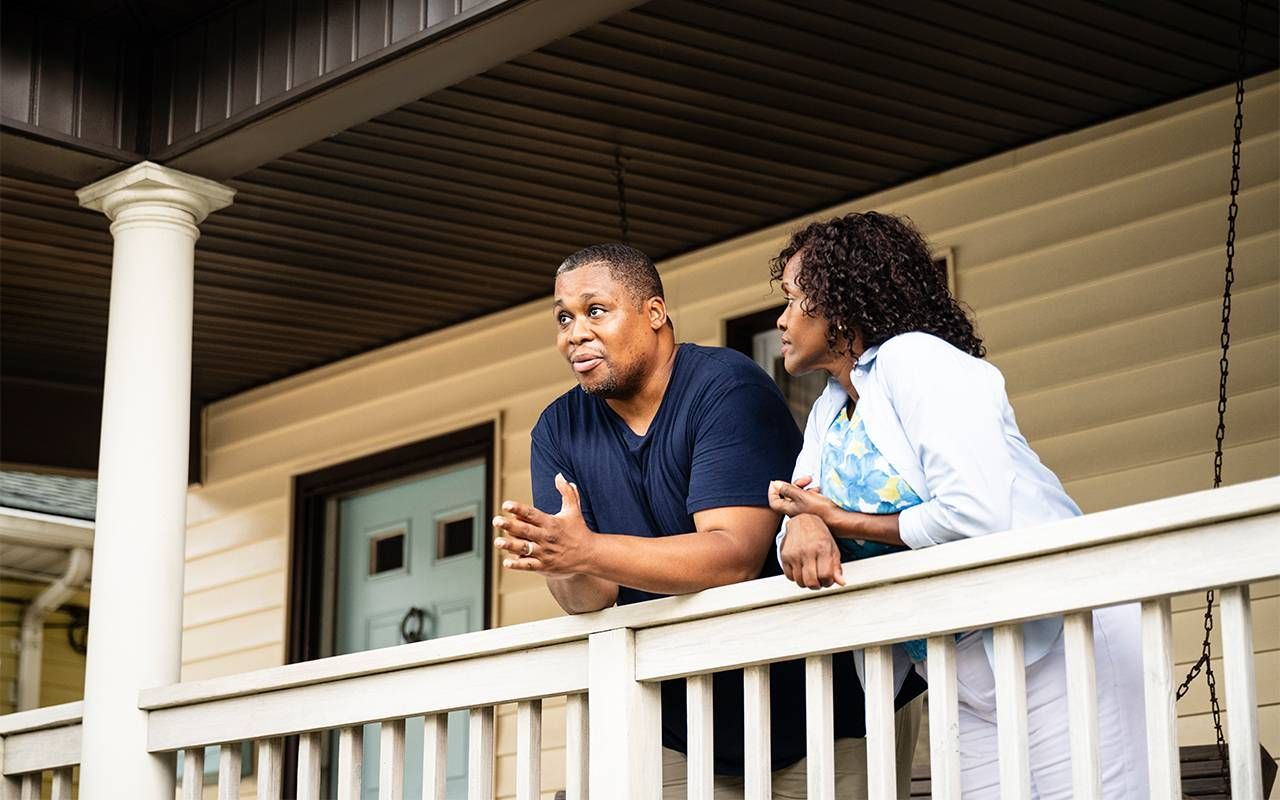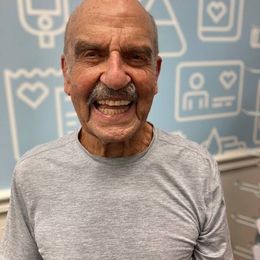Talking to Men and Women About My Grief
Conversations with men made me feel my words were better left unspoken. But women listened and understood.
I learned grieving was the most intimate of acts when my wife Muriel died. There is no guide telling us how to mend a wounded soul. All you can hope is those who love you know that silence and an embrace comfort when words do not.

Men we knew who survived their wives either moved closer to their children or quickly found another woman companion.
My children and grandchildren surrounded me with love they knew I needed to feel, not hear. Friends understood there were no words and just held me. When given advice, it almost always came from men. They wanted to help, but all I heard of their advice was the word's closing sound, "ice," and it chilled rather than warmed me. Women I spoke with remained silent, speaking only when they heard what I needed.
I've been alone for five years and have some sense of what heals those nearly strangled by loss. Friends who experienced their own loss told me that while I would be certain they were wrong, they wanted me to know the passage of time would soften my anguish. It has, and as the months and now years have passed, I no longer gasp when I breathe. There was something else I learned that proved true. An act of kindness is someone sitting quietly and just listening, and acts of kindness heal.
I was part of a couple for nearly seventy years. In the first months, our friends invited me to dinner, making certain I wasn't sitting alone at a silent table. As time passed, though, they returned to their own lives as Muriel and I would have returned to ours. The dinner invitations stopped coming.
I realized I would have to find friends who were also alone. If there were unmarried friends in our old address book, virtually all were women. Men we knew who survived their wives either moved closer to their children or quickly found another woman companion.
I was nearing my ninetieth birthday when I lost Muriel and women carrying casseroles called on younger men. But I was hungry to have dinner with someone with whom I could talk.
I began calling widows we knew and quickly found that most had formed deep friendships with other women but were happy to meet with a man as a friend, not as a romantic partner. The simple act of going to a restaurant with someone quickened the step of hours that had refused to move.
As our friendships grew, we began meeting at our homes, sometimes cooking, more often having dinner delivered so we could spend our time just talking. It was not unusual to pass three or more hours reminiscing about the lives we once led and the lives we were leading now.
When I asked men their feelings about loss, living alone or just growing older, most shrugged and said as though the conversation was over, "It is what it is."
I had grown up in the world of boys and men, at first on Bronx streets, then in schoolyards, in Army barracks, in an all-male college and in workplaces structured to please men. I began calling the few single men I knew who were about my age, hoping to recapture the tight bond of male friendship. But conversations that came alive when women spoke or listened never left the ground with men.
When I asked men their feelings about loss, living alone or just growing older, most shrugged and said as though the conversation was over, "It is what it is." Their discomfort made me feel I was prying. Women seemed to understand grief would explode if it didn't find a way to pour out in words. The men I talked with made me feel such words were better left unspoken. Why talk about something that had happened and couldn't be fixed?
Women seemed to understand grief would explode if it didn't find a way to pour out in words.
Without a moment's research or shred of evidence, I began looking for reasons it was easier for me to express feelings to women than to men. As a boy, I didn't have to be told there were unspoken rules males followed. Girls talked; boys acted — or so it seemed. As men entered their working years, it struck me they lived their lives in more tightly structured stages. A man's career shaped who he was. Ask a man who he is and he'll tell you what he does for a living.
Of course, some women also followed stages that took them from childhood to student to wife, to mother and into and through their careers. I was brought up to believe that a man was defined by his career, while women seemed to have within a depth of feeling that transcends any stage. I saw that transcendence in my wife and now in my three daughters and in my women friends. Just as they were the ones who heard the baby cry at midnight, they are the first to hear the muted plea of someone who needs their tenderness.
Certainly the men I remain closest to have touched me with kindness, heard my pain and helped me heal. But, for reasons I'm trying to understand, most of the men I meet seem to see this stage — the final one — as one more time for women to deal with feelings while they do what men do, solve problems.
I miss the friendship of men, but for now at least I find talking with women an act of kindness that reassures me I can be happy again.


